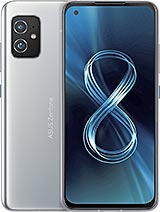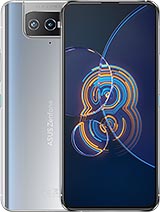Asus Zenfone 8 Flip review By GSMArena Official
Hey, what's up guys will here for GSM arena by now, ASUS's zen phones are known as those phones with a flip camera, but this year, they're coming out with both a flip model called the before 8 flip and the before 8 with a normal camera. Is this flip a meaningful upgrade to consider over last year's before 7 pro, let's find out in our full review? The before 8 flip looks quite similar to last year's before 7 pro it's made from glass with an aluminum frame and the most distinctive feature is the camera module that can flip to the front for selfies the phone feels overall, quite solid and premium though, unlike the compact, before 8, the flip is rather bulky and heavy in the hand the glass back is curved and is a bit of a fingerprint magnet, but you won't find a fingerprint reader on the body this time around. It sits under the display. The flip mechanism itself seems basically unchanged from what we saw last year from ASUS. It moves with a satisfying sound effect and, besides traditional selfies, the cameras can be set to different angles, which can allow for some extra creativity in your shots. Of course, having moving parts also does bring some extra risk of breakage, but ASUS promises, great durability and the feedback from the past models has been pretty reassuring.
The before 8 flips display is the same 6.67 inch 1080p OLED panel. We saw on last year's before 7 pro protected by gorilla glass 6. It's got a fast 90 hertz refresh rate and a responsive, 200hz touch sampling rate, but keep in mind that these specs haven't changed from last year, and they're, not as impressive as the 120hz refresh or 240hz touch sampling rate you get on the regular before 8. The panel looks great, though it's crisp with deep blacks, and it's nice to have a screen without an unsightly bezel or notch. The color accuracy is excellent on the standard.
Color preset and max brightness is quite good at around 520 nits with the slider, and it boosts up to 730 nits in auto mode when out in bright sun for audio. There is a pair of stereo speakers, one at the bottom and the other near the top. That doubles as the earpiece what's interesting is that its driver is inside the flip mechanism itself and the sound comes out through a little slit. The speaker setup scored a good mark in our loudness test and on top of that, they're enhanced by Dirac technology to create the perception of bass through psychoacoustics, plus, the frequency response can adjust in real time to minimize distortion. Just like last year, there's no headphone jack, so you'll need to use a dongle to plug in.
What's unusual, though, is that ASUS has managed to fit a jack on the much smaller before 8. The before 8 flip has an always on display, which will show you the time and notifications while the phone sleeps and yes, there is also a notification led down at the bottom, and you get 256 gigs of storage on board the device which is expandable via micros. The interface of the before 8 flip is ASUS zen UI on top of android 11, and they promise at least two major OS updates. You get a pretty standard. Looking home screen and notification shade, as well as an app drawer, one special feature is that you can map a function to the power button which will activate upon a double press or holding the button down.
There's an extensive battery menu, which gives you quite a bit of control over apps' system, power, usage and performance, there's even a dynamic mode which uses AI to optimize power, use for your habits. And, finally, you get a game genie which can be opened with a swipe in game, similar to what you'd find on ASUS's ROG phones. This can give you real time. Performance stats, as well as plenty of extensive options for your gaming games, run great on the before 8 flip, thanks to a top of the line, snapdragon 888 chipsets the same that you'd find in some of this year's most popular flagships as you'd expect in benchmarks. The before 8 flip sits near the top of the charts, even besting, some of the more expensive phones in certain tests, since it has a lower res screen to worry about.
On top of that, ASUS boasts something called OptiPlex is an AI driven memory management system which speeds up apps. You are most likely to use and shuts down unnecessary ones. In the background, the before 8 flip has a large 5 000 million power battery. Just like last year's before, 7 pro and battery life is quite comparable. Here.
The 8 flips scored an endurance rating of 98 hours in our proprietary tests. It's all right, but not great, considering the size of the power pack, charging speed is decent, but I wouldn't call it fast. In half an hour, the bundled 30 watt charger was able to take a dead battery to 53 charge. Now on to the cameras, which are the same as last year, and just like on last year's non-pro model, you don't get is on any of them. The triple camera setup consists of a 64 megapixel, quad bay or main cam, a 12 megapixel ultra-wide cam, with autofocus and an 8 megapixel telephoto cam with three times optical zoom.
As far as quality goes not a lot has changed since the before 7 pro, at least during the day.16 megapixel photos from the main cam are excellent. They're, quite sharp with a high level of detail, colors are vivid and dynamic range is balanced for portraits the software will crop from the main camera and upscale it back to 16 megapixels. These still look fine, though, with great edge detection and convincing refocus backgrounds.8 megapixel zoom shots from the telephoto cam are decent. The processing and colors are pretty close to the main cameras, but the lower resolution means you get less sharpness and detail here.12 megapixel shots from the ultra-wide are okay, you get good color, reproduction and dynamic range, and the distortion correction is well done. However, there's more to be desired as far as detail and sharpness go since the ultra-wide cam has autofocus, you can use it to take close-up shots too.
However, there's no dedicated macro mode here. One of the major reasons to get a phone with a flip mechanism is that he can use the rear cameras with all their bells and whistles for selfies, taken with the main camera are tough to beat. They have autofocus, they're sharp, and they have plenty of detail even in challenging or poorly lit scenes. Colors look, natural and dynamic range is excellent too. Ultra-wide selfies are great as well forget those dedicated front-facing ultra wide.
This blows them out of the water. The processing is just as nice as the main cams, but these come out a little softer. You can also take a selfie using the telephoto cam, but I'm not really sure why you'd want to let's move on to low light. Shooting you don't get an auto night mode like you do with the regular before 8. Using the default photo mode will result in shots that are often noisy, soft and lacking.
In contrast, light sources and highlights are clipped, though shadows come out bright and detailed. You can switch on a dedicated night mode with either 4 or 6 seconds of exposure, and the longer option will get you a clearer and more detailed result, and it's often brighter too, but with either exposure option compared to auto mode you'll have a considerable improvement in the detail: sharpness contrast, noise levels and dynamic range. If you zoom at night, the phone will try to use its telephoto camera rather than a crop from the main cam. The results aren't stellar, sharpness and detail are lacking, and these are quite grainy too. The ultra-wide cam doesn't do well in low light conditions.
These images are noisy and soft, sometimes even appearing blurry. Turning on night mode saves the situation, adding sharpness and extra detail and restoring the highlights, since you can use these cameras for selfies as well. Here are some examples of night mode selfies from the main cam. There is some softness, but the subject's face is well exposed, and you even get some fine detail. The ultra-wide struggles in these sorts of situations, but is still fairly usable.
The before 8 flip can record video when up to 8k resolution, and it supports stabilization too 8k. Video is nice with low noise, great contrast and vivid colors. The 4k video is really sharp, and it's hard to tell the difference in fine detail from the 8k footage.4K video from the ultra-wide camera is really nice too. It's in line with the main cams in terms of processing, and it's plenty, sharp ASUS markets, the before 8 flip as a blogging device, and it's hard to deny that 4k selfie videos are crisp and colorful and well stabilized too. So that's the before 8 flip.
You get a premium design featuring that nifty flip module that enables both an unbroken front, AMOLED display and awesome selfies taken with the rear cameras. The rest of the camera experience is quite nice too. Plus you get a flagship, chipset high quality, stereo speakers and dependable battery life. What I don't like is that this year's new features were reserved for the regular before 8, whereas the 8 flip brings basically the same features as last year's before 7 pro the only major upgrade being the new chipset. Don't get me wrong.
The before 8 flip is a great phone that's worth recommending, but if you're a selfie or vlogging enthusiast, the before 7 pro is equally well-equipped, and it even has is. The choice. Is yours ASUS doesn't mind thanks for watching guys, stay safe and see you on the next one.
Source : GSMArena Official


























